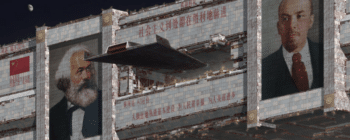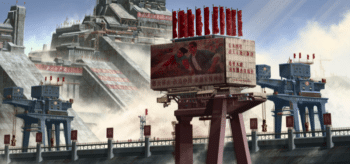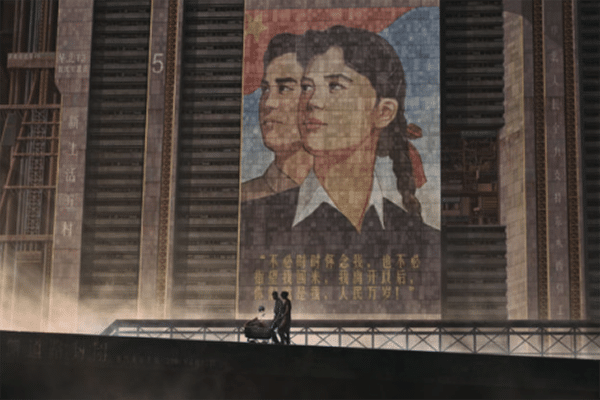Dear friends,
Greetings from the desk of Tricontinental: Institute for Social Research.
At the 2012 United Nations Conference on Sustainable Development held in Rio de Janeiro (Brazil), member states decided to replace the Millennium Development Goals (established in 2000) with Sustainable Development Goals (SDGs). The first SDG was to ‘end poverty in all its forms everywhere’. Despite the enthusiastic verbiage, it was clear that poverty was simply not going to be ended across the world. Even before the COVID-19 pandemic, the data showed that poverty had become intractable.
In October 2022, the UN Development Programme and the Oxford Poverty and Human Development Initiative released its 2022 Global Multidimensional Poverty Index report, which showed that at least 1.2 billion people in 111 developing countries live in acute multidimensional poverty. The ‘deprivation bundles’ referred to in the full title of the report explore how a range of necessary facilities are absent for over a billion people. For example, the report notes, ‘Almost half of poor people (470.1 million) are deprived in both nutrition and sanitation, potentially making them more vulnerable to infectious diseases. In addition, over half of poor people (593.3 million) are simultaneously deprived in both cooking fuel and electricity’. These ‘deprivation bundles’—the absence of both electricity and clean cooking fuel, for instance—amplify the low incomes earned by billions of people.
In 2017, the World Bank determined that the income threshold for poverty, which had been set at $1.90 per day, was far too low. They set the new poverty line at $2.15 per day, which accounted for over 700 million people. The World Bank’s 2022 Poverty and Shared Prosperity report showed, using data from 2019, that if the poverty line is set at $3.65 a day, 23 percent of the world lives in poverty, and if the line is set at $6.85 a day, then almost half of the world’s population (47 percent) lives below the poverty line. These numbers are horrifying.

Fan Wennan, (China), 嫦娥同志 (‘Comrade Cháng’é’), 2022.
What is extraordinary is that the UN report on deprivation bundles did not refer to the programme to eradicate extreme poverty in China. On 25 February 2021, the Chinese government announced that the last 100 million people living below the poverty line had been lifted above it by the efforts of the Chinese people, thereby ending absolute poverty in China. In June 2021, the authors of China’s submission for the voluntary national review of the SDGs wrote, ‘All the 98.99 million rural residents living under the current poverty line have been lifted out of poverty, marking the realisation of poverty eradication goal of the 2030 Agenda 10 years ahead of schedule’. ‘The rice bowl of the Chinese people’, the review noted, ‘is held firmly in their own hands’. A few months later, UN Secretary General António Guterres lauded China’s ‘strong commitment and significant progress to eradicate poverty in all forms and dimensions, one of the world’s leading challenges’. Even a study by a former UN official which contested some of the Chinese data nonetheless accepted the enormity of this achievement. In April 2022, the World Bank and China’s Development Research Centre of the State Council released an important study, Four Decades of Poverty Reduction in China, which tracked the trajectory of this historic achievement. And yet, the UN report neglected to highlight that the Chinese had eradicated absolute poverty, nor did it offer an assessment of how they did so.

Fan Wennan (China), 中国2098: 欢迎回家 (‘China 2098: Welcome Home’), 2019—2022.
At Tricontinental: Institute for Social Research, we have been very interested in China’s project to abolish absolute poverty. In July 2021, we published a study entitled Serve the People: The Eradication of Extreme Poverty in China, which looked into the methods used by the Chinese state and by Chinese social institutions to break the back of what the UN’s Guterres called ‘one of the world’s leading challenges’. China’s achievement, we wrote, ‘is neither a miracle nor a coincidence, but rather a testament to its socialist commitment’. That phrase—‘socialist commitment’—governs our understanding of what has occurred in China since 1949. We explore this idea of China’s ‘socialist commitment’ and the eradication of extreme poverty in issue no. 2 of the international edition of Wenhua Zongheng, ‘China’s Path from Extreme Poverty to Socialist Modernisation’. This issue contains three important essays:
- ‘Socialism 3.0: The Practice and Prospects of Socialism in China’ by the Longway Foundation
- ‘The Battle Against Poverty: An Alternative Revolutionary Practice in China’s Post-Revolutionary Era’ by Li Xiaoyun and Yang Chengxue
- ‘How Targeted Poverty Alleviation Has Changed the Structure of Rural Governance in China’ by Wang Xiaoyi
The articles by the Longway Foundation and by Li Xiaoyun and Yang Chengxue foreground the importance of poverty alleviation throughout the historical stages of China’s socialist project, with the dual strategy of transforming the relations of production and expanding social wealth. Li and Yang emphasise the role of the Communist Party of China (CPC) during the targeted phase of the poverty alleviation campaign, which took place under President Xi Jinping and included the participation of 800,000 cadre in surveys carried out in 2014, the dispatching of three million cadres who went to live in the poor villages for at least two years, and the 1,800 cadre who died during this fight against poverty. This enormous transformation, led by the CPC, re-established the party’s moral authority and brought the issue of socialism and social justice to the centre of Chinese discussions.
Wang Xiaoyi takes us to the countryside, where the problems of poverty once seemed intractable, and looks at how rural areas had been hollowed out by mass migrations and rural institutions impoverished during the post-1978 reform period. Central to the programme to eradicate extreme poverty, Wang points out, was the rebuilding of rural institutions, which was enabled by the transfer of three million CPC cadre to the countryside, mobilised by experiments that drew from the campaign-style governance of the Mao Zedong era. Wang hopes that the new rural infrastructure created by the programme to eradicate extreme poverty will remain in place, including the ‘high level of villagers’ participation in public affairs’ through their village committees.

Fan Wennan (China), 中国2098: 塔里木湖南段——若羌泵站 (‘China 2098: Tarim Hunan Section—Ruoqiang Pumping Station’), 2019—2022.
A key point made by the essays in this second issue of Wenhua Zongheng is that the principle of socialism and the socialist infrastructure—especially the CPC—that enabled it are central to the eradication of extreme poverty. It will be difficult for the Chinese path to socialist modernisation to be seen as a model to be adopted by other countries unless these countries also ground their programmes on a socialist footing. Poverty was not eradicated by cash transfer schemes or by rural medical programmes alone, though these are valuable policy options: it was eradicated by a socialist commitment to take ideas such as dignity and realise them in the world.
When our team of researchers went to the Wangjia community in Guizhou Province to track the programmes to eradicate extreme poverty, they met He Ying, who became a CPC leader during her attempt to lift herself from being a poor migrant labourer. A member of the All-China Women’s Federation, He Ying described how she works with newly migrated peasant women to give them the confidence to transform their reality. Village life of the old kind is behind them. He Ying now lives in a community of housing complexes that have kindergartens, elementary and middle schools, and community health centres. As she showed us photographs of her former home, old and dilapidated, she said—without romanticism but with a sense of loyalty—‘I’ll bring my children back to my old village so that they can remember the life of yesterday and cherish the life of today’.
Warmly,
Vijay

